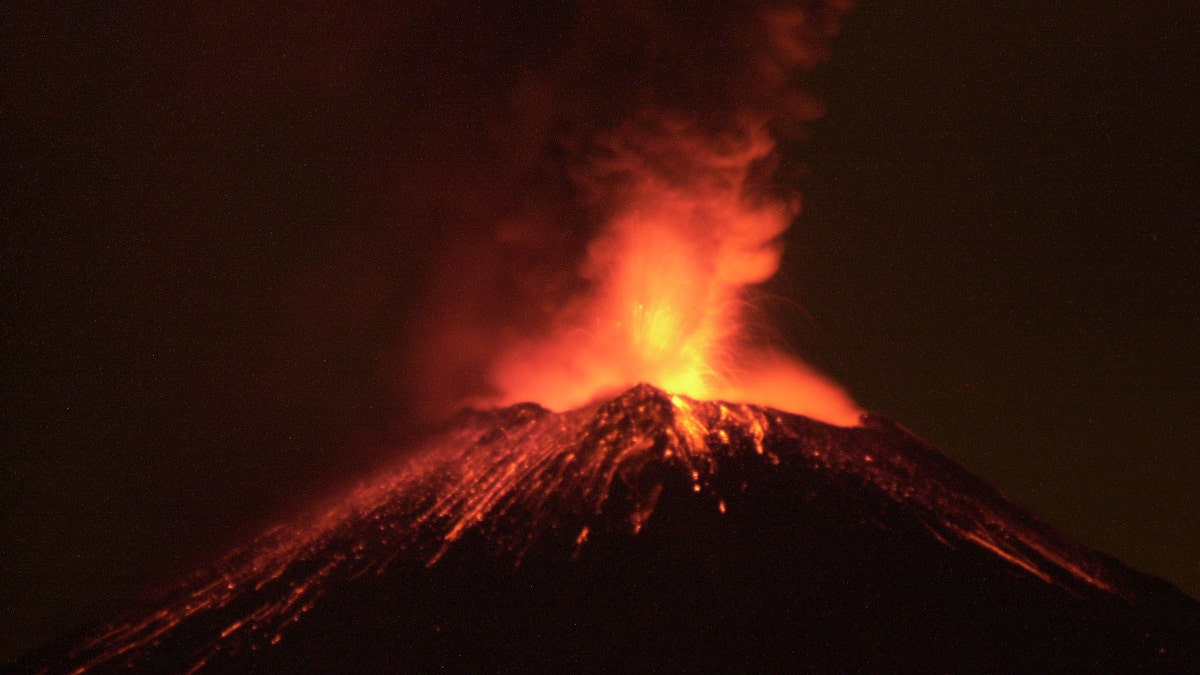
383484 01: The Popocatepetl volcano spews rocks and ash early December 19, 2000 in central Mexico. Centuries after its last catastrophic eruption, the volcano is showing signs of activity and has forced the evacuation of people from villages nearby. (Photo by Susana Gonzalez/Newsmakers)
Many places around the globe ring in the New Year with fireworks, but Mother Nature gave residents of one Mexican town a very explosive show to celebrate the arrival of 2015.
According to statistics compiled by Mexico's National Disaster Prevention Center, the infamous Popocatépetl volcano erupted almost 30 times in less than 24 hours leading up to 2015 and prompted the Mexican government to ask people living within 6 miles of the mountain to evacuate.
Besides the 28 reported eruptions noted by Mexico’s disaster agency, the volcano also released smoke more than 450 times and at least five strong tremors were also felt in the area.
The active volcano, which is located about 40 miles from Mexico City, emitted gas and ash some two miles into the sky.
Popocatépetl is the second highest peak in Mexico.
Mexico's National Disaster Prevention Center laboratory keeps a round-the-clock watch on Popocatépetl, with anywhere from six to 15 technicians analyzing data for signs of a full-scale eruption, which they can never fully anticipate.
Technicians work in a 20-by-30-foot (6-by-9-meter) laboratory resembling those that once housed old giant supercomputers, everything plain white with a server at one end and screens all around. Five remote-controlled cameras positioned on the side of the mountain emit real-time images, while sensors feed data to the constantly scrolling seismographs as the crew and volcanologists analyze the concentration of gases and changes in the shape of the mountain. The loudest laboratory sound is a regular ping that alerts technicians to every seismic shift, at least a half dozen an hour.
The data helps set the "volcano stoplight," a three-color system in which green means little activity, yellow means warning and red starts the evacuation process — something that has occurred only twice since 1994, when the volcano awoke again after sitting dormant for seven decades.
"It's one of the most advanced laboratories of its kind in the world, and the scientists in charge are using the best methods," said Michael Sheridan, a volcanologist at the University of Buffalo in New York who has studied Popocatépetl. "It is very difficult to predict the behavior of a volcano that has not had an eruption in recent history."
The Associated Press contributed to this report.
The Associated Press contributed to this report.








































